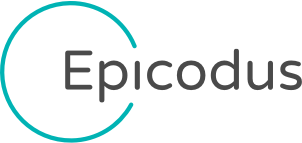For the next few months, we’re going to be celebrating women in programming past and present. And you can’t talk about the history of women in programming without honoring the woman who essentially started it all: Ada Lovelace.
Born in 1815, Ada had a famously passionate poet for a father (Lord Byron), and a mother who threw off the conventions of the day and insisted that Ada be schooled in mathematics and science. The marriage between Ada’s parents was not a happy one (her mother left her father five weeks after Ada’s birth), but their dual influence is perhaps at the heart of Ada’s programming origin story. Despite her mother’s best efforts to shield her from her father’s influence, she still inherited his romantic spirit, which when fused with her passion and aptitude for mathematics, formed what she would come to call her love for “poetical science."
Ada’s ability to combine the two seemingly dissimilar subject matters of poetry and science eventually primed her to see the beauty and the vast potential in Charles Babbage’s calculating machine, the Difference Engine. When she attended one of his legendary salons at the age of seventeen she was captivated by its possibilities, and she set her mind to convincing Babbage to become her mentor. When he consented she not only became a champion for his work, but an amplifier, pushing the potential for his Analytical Engine beyond what he had visualized himself.
In 1843, Ada supplemented Babbage’s Analytical Engine with her own notes that essentially envisioned the modern computer, a machine capable of being programmed and reprogrammed to execute a virtually unlimited number of operations. She also noted that the machine could be used for far more than just mathematical calculations; any form of content such as pictures, symbols or sounds, could be expressed and manipulated digitally. In addition, her notes offered a step-by-step outline for what we would now call a computer program or algorithm.
Ada died in 1852 at the age of 36. Over 150 years later, The U.S. Department of Defense developed a language named after her. Ada's prescient thoughts on computing have had a profound impact on technology, infusing our digital age with “poetical science."


